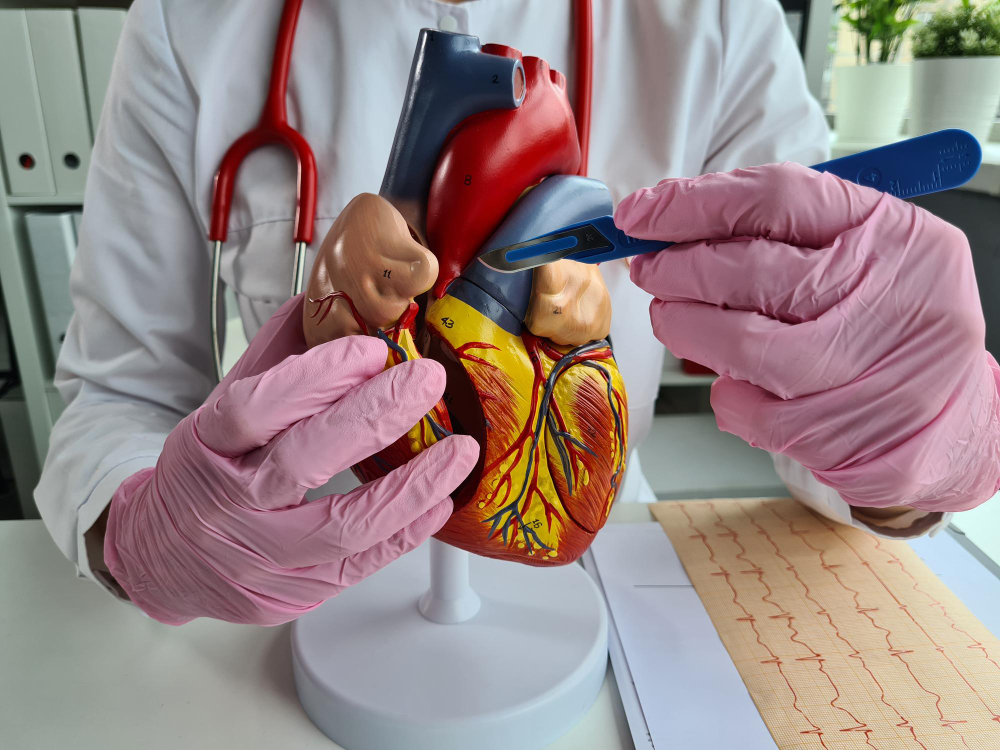Heart Murmurs

Understanding Heart Murmurs:
A heart murmur is an abnormal sound heard during a heartbeat. It can be caused by turbulent blood flow within the heart or blood vessels. While some murmurs are harmless and don’t require treatment, others may indicate underlying heart valve problems or other cardiac conditions.
Diagnosis:
Diagnosing a heart murmur typically involves a thorough medical history review, physical examination, and auscultation (listening) with a stethoscope. Additional tests such as echocardiography, electrocardiography (ECG), or cardiac MRI may be conducted to evaluate the severity and underlying cause of the murmur.
Advanced Treatment Options: We offer a range of advanced treatment options for heart murmurs, tailored to each patient’s specific needs:
Medical Management: In cases where the murmur is benign or related to a manageable condition, such as mild valve regurgitation, medical management may be sufficient. This often involves medications to control blood pressure, cholesterol levels, or heart rhythm.
Valve Repair or Replacement: If the murmur is due to a malfunctioning heart valve, surgical repair or replacement may be necessary. Our expert cardiac surgeons perform minimally invasive procedures to repair or replace damaged valves, restoring normal blood flow and improving heart function.
Transcatheter Interventions: For select patients deemed high-risk for traditional open-heart surgery, we offer minimally invasive transcatheter interventions such as transcatheter aortic valve replacement (TAVR) or closure of atrial septal defects (ASD) and ventricular septal defects (VSD). These procedures involve inserting a catheter through a small incision, typically in the groin, and deploying a device to repair the affected valve or defect.
Lifestyle Modifications: In conjunction with medical and surgical interventions, lifestyle modifications play a crucial role in managing heart murmurs and preventing complications. Our team provides personalized guidance on dietary changes, exercise programs, smoking cessation, and stress management to optimize heart health.
